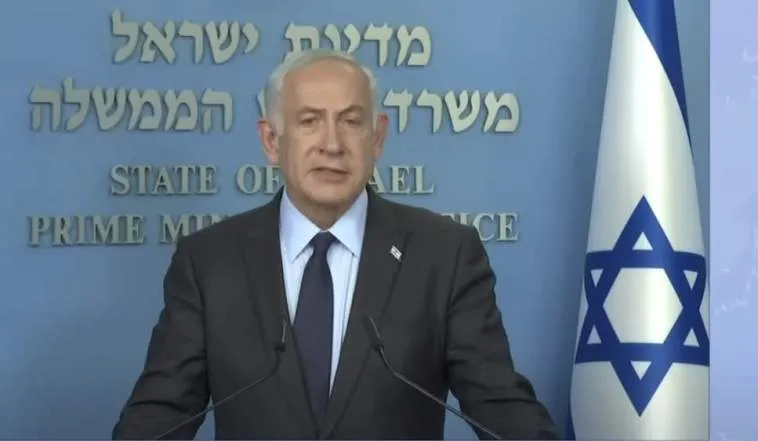(Yahoo) Early this month, Israeli Prime Minister Benjamin Netanyahu held a mock wartime meeting of his security cabinet in a bunker. Communities in northern Israel are preparing shelters for a long-term conflict. And the military is working overtime on a new laser system to intercept rockets.
Their focus is Iran and its nuclear ambitions.
For years, Israel has considered a nuclear-armed Iran to be an existential threat, and directed its energies to confronting it and its regional proxies in Syria, Lebanon and the Palestinian areas.
But much is new in the past few months. Iran has emerged from diplomatic isolation, forging a key military alliance with Russia from which it’s seeking air defenses, restoring diplomatic ties with Saudi Arabia and pushing its allies to fire missiles at Israel. It is also enriching more and more uranium, including a small amount almost to weapons grade — while denying any plans for making a bomb.
All of these developments, along with a political crisis in Israel triggered by Netanyahu’s attempt to overhaul the judiciary, have pushed the government in Jerusalem into a position from which it’s issuing daily warnings and letting everyone know that it would not hesitate to act, even alone, if it felt enough of a threat from Iran.
Don’t Wait
Those who know the country say that while there is an element of public posturing, there is also serious intent.
“Iran is hardening its defenses, meaning Israel could lose the option to attack,” said Dennis Ross, a former White House Middle East envoy. “As someone who has worked on this issue and talked to the Israelis for a long time, the one thing I am personally convinced of is they will never allow themselves to lose the option. You don’t wait until it is one minute to midnight.”
Israeli officials cite the topic wherever they go. Nir Barkat, Israel’s economy minister, told Bloomberg TV in New York recently, “Iran threatens the world. They want to create a bomb in order to use it. We’re maybe first in line, but we’re not the only one.”
But Israel’s ability to deliver a decisive blow is questionable, especially if it acted alone and not alongside the US, which says it wants a diplomatic solution to Iran’s nuclear program. Washington and Tehran denied recent reports that they’ve been quietly exploring a new nuclear deal, though Iran said this week the two are close to an agreement on prisoner swaps.
Netanyahu rejects the US stance toward Iran, telling Sky News that “diplomacy can only work if it’s coupled with a credible military threat.”
Internal Mess
Among experienced Israel watchers, there is skepticism that Netanyahu would strike Iran. Dina Esfandiary, a senior adviser for the Middle East at the International Crisis Group, believes he’s diverting attention from his difficulties at home, especially the widespread outrage over plans to weaken the judiciary.
“When everything is a mess internally, the best thing is to reiterate that you have an enemy outside,” she says.
But even opponents of Netanyahu say that, on Iran, they back him. “On this, there is no coalition or opposition in Israel,” said Yair Lapid, opposition leader, when he was in New York recently. “Everybody’s on the same note.”
In private, Israeli officials worry whether they can get the job done without their main ally. And they are concerned that deep divisions within Israeli society — exemplified by this year’s mass protests over the judicial plan — could hinder preparations and give their enemies the impression that they’re more vulnerable.
“The Saudi-Iranian deal is helping Iranians feel stronger,” said Jacob Nagel, a former Israeli national security adviser. “The Iranians are giving the money, training, instructions and weapons to push Israel into a multi-front confrontation.”
Israel warplanes took out an Iraqi nuclear reactor in 1981 and a Syrian one in 2007 — and there’s talk about doing the same with Iran. Israel came close to doing so twice before under Netanyahu. In 2010 his inner security cabinet, backed by the defense establishment, pulled him back, and in 2012 the US talked it down. Today’s security cabinet is more hawkish.
The intense preparation, then and now, serves as a messaging tool, to persuade the US and Iran that Israel means business and to slow or stop Iranian uranium enrichment and missile production.
Regional Spillover
A strike on Iran could roil oil markets and turn into a regional conflagration, affecting states such as Saudi Arabia and the United Arab Emirates as well as shipping routes through the Gulf.






